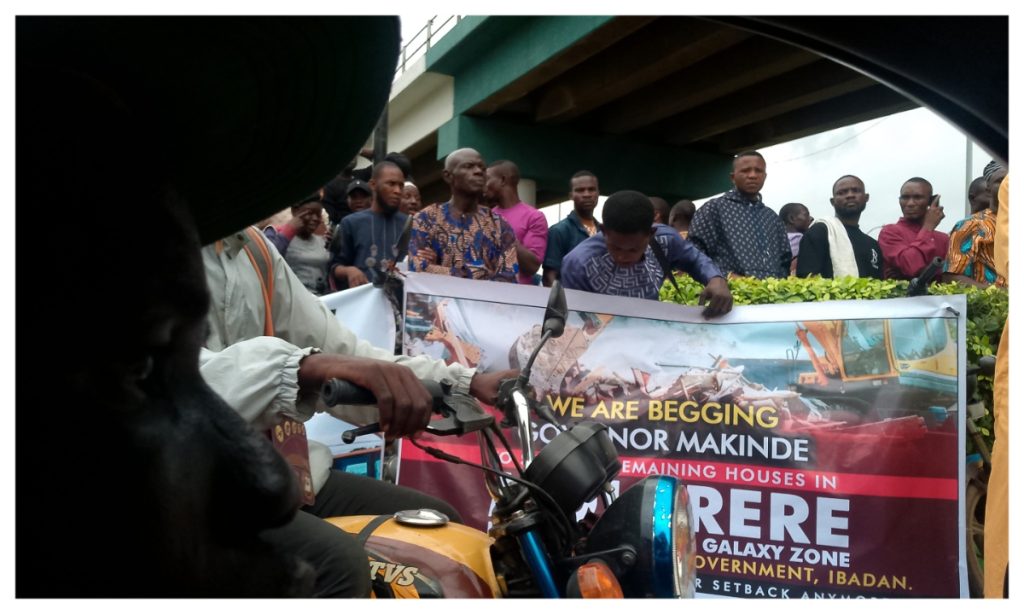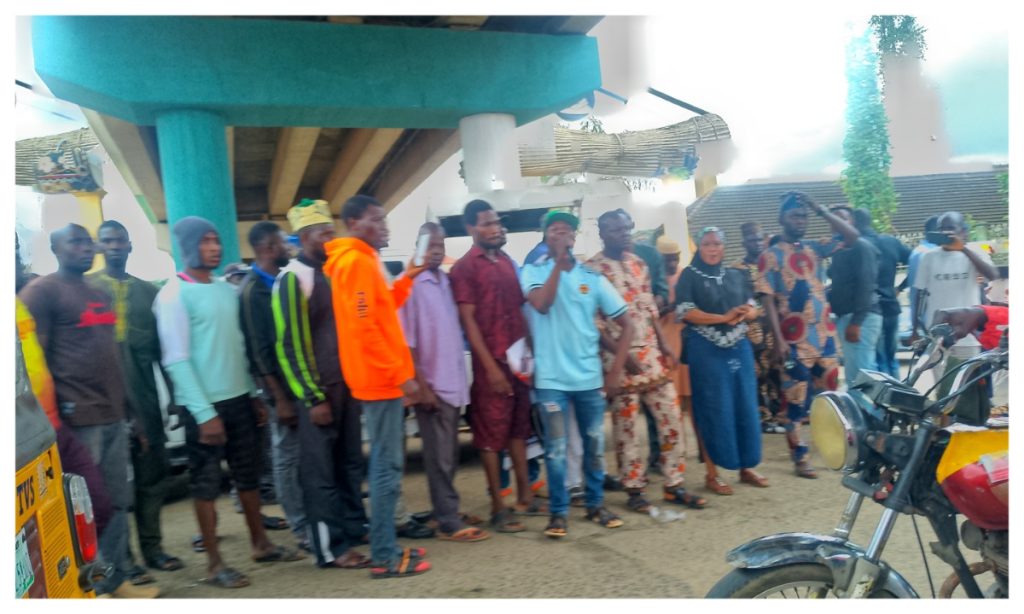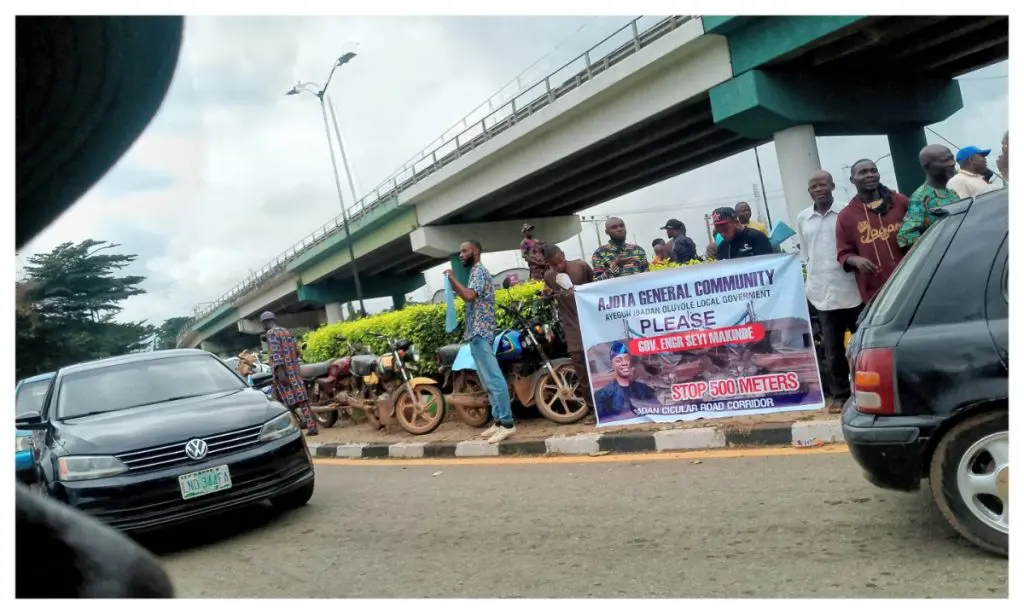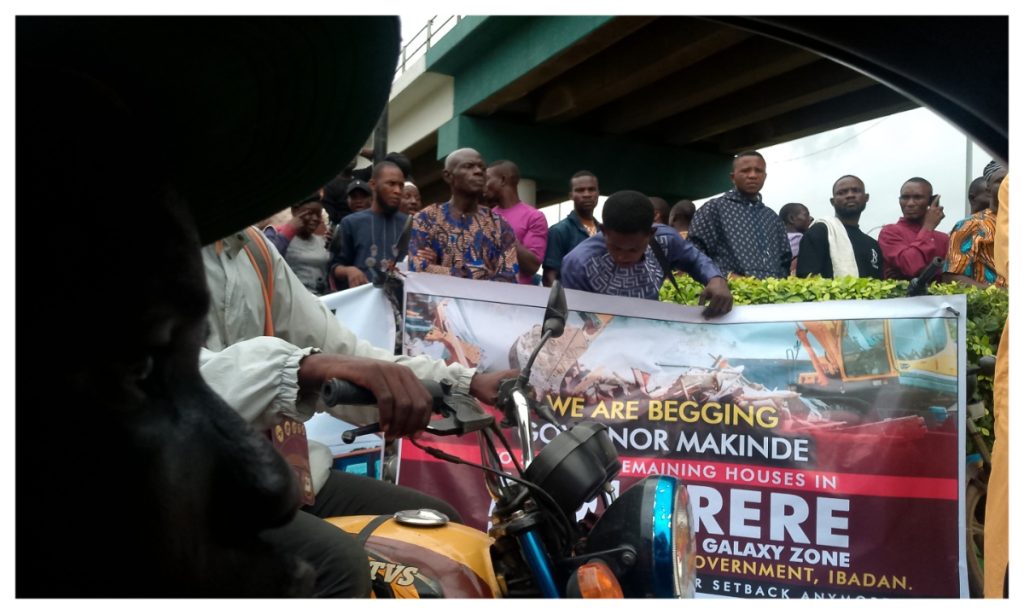The city of Ibadan, Oyo State’s capital, has been thrown into turmoil as residents face the grim reality of losing their homes to demolition. This development stems from the ongoing construction of the Ibadan Circular Road, a major project designed to enhance transportation and boost economic growth in the city. However, the project comes at a heavy cost—many residents have been left stranded as their homes are being torn down.
For the past few days, protests have escalated across the city as residents march to the Oyo State Government Secretariat in Agodi, seeking an audience with Governor Seyi Makinde. They are calling on the governor to stop the demolition of homes, some of which were built with life savings.
The Ibadan Circular Road project, a long-awaited infrastructure plan, aims to improve the flow of traffic and ease congestion in the city. However, the implementation of the project has led to the demolition of houses located along the road’s proposed path. Many residents have found themselves at risk of being displaced, their homes already marked for demolition.
Since the beginning of the year, the destruction of houses has continued steadily. This has left many families not only homeless but also without adequate compensation or relocation options. Some of the residents claim they were not given enough warning or time to make alternative arrangements.
On Thursday, hundreds of affected residents, many holding placards and banners, gathered outside the state secretariat, pleading with the governor to put an end to the demolitions. They expressed their concerns through various inscriptions on their banners, with messages like “Stop Demolishing Our Homes” and “We Built These Houses with Our Hard-Earned Money.
One of the residents, identified as Kolawole, shared the collective pain and fear gripping the community. “We are scared. Since the demolition started, many people in the area are living in panic,” he said. He explained that entire families have been displaced as homes were razed to the ground. Kolawole recounted the heart-wrenching story of a family who saw not one, but three homes demolished—those of the father, mother, and child.
“The house of the father was demolished, then the mother’s, and finally the child’s. They had no place to go but to move back into the father’s house. These were homes we built with our hard-earned money,” Kolawole lamented. His story is echoed by countless other residents who are still reeling from the loss of their homes.
Many of the protesters explained that while they understand the need for the Ibadan Circular Road project, they believe the government has not fully considered the impact it is having on ordinary citizens. Some residents are calling for a revision of the road’s design or a reduction in the land being taken for the project. They argue that enough land has already been sacrificed, with 150 meters already claimed by the government. Now, with plans to take an additional 500 meters, the fear of losing more homes looms large.
The state government, led by Governor Seyi Makinde, has championed the Ibadan Circular Road as a transformative project that will greatly improve the city’s infrastructure. The road is expected to enhance the ease of travel within Ibadan, reduce traffic congestion, and attract investment, creating jobs and boosting economic growth. The project has received broad support from many stakeholders who see it as a key element in the future growth of the state.
However, the government’s decision to demolish homes along the proposed route has caused widespread controversy. Residents feel the human cost of the project is too high, and many believe that alternative routes or compensation packages should have been considered. Some residents have also raised concerns about the fairness and transparency of the compensation process, with claims that many affected individuals have not received adequate or timely compensation for their lost properties.
Despite the ongoing protests, residents have maintained their hope that Governor Makinde will step in to halt the demolition and provide a solution that can balance both development and the well-being of the affected people.
“We are not against the road project,” one resident explained. “We know the city needs it. But we are asking the governor to look into our plight and find a way that doesn’t make us homeless.”
For many, this is not just a matter of losing property—it’s about losing the sense of security that comes with having a place to call home. With their entire lives invested in building their houses, the thought of having to start over is terrifying for many residents.
As protests continue, the future of the Ibadan Circular Road project hangs in the balance. While the government has expressed a commitment to moving forward with the project, there is growing pressure to address the concerns of those being displaced.
The key question now is whether the government can strike a balance between the need for infrastructure development and the protection of residents’ homes and livelihoods. Many are hopeful that a middle ground can be found—one that allows the city to grow without forcing its people into unnecessary hardship.
Until then, the residents of Ibadan will continue their protests, holding onto the hope that their pleas will be heard, and a compassionate solution will be reached.










